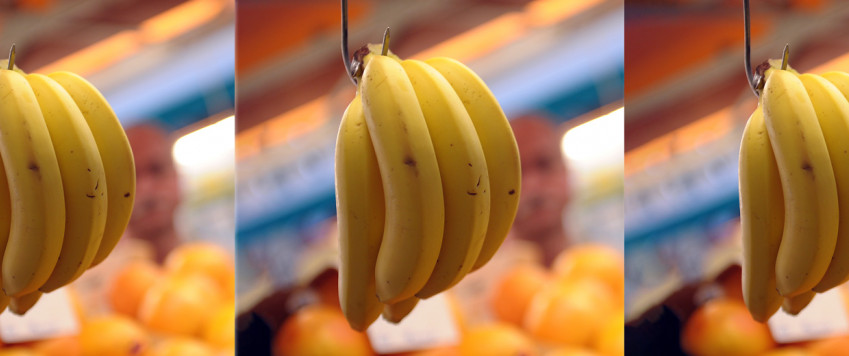Let's use the money saved on bananas to pay heating and electricity bills

The recovery of demand for different types of products and services and the failure of supply to keep pace with this rebound have contributed to price hikes in Latvia. The data on the increase in consumer prices published by the Central Statistical Bureau show that annual inflation stood at 4.8% in September, with the most significant rises reported in electricity and gas prices. September also saw prices of food products follow an upward path.
Although probably almost everyone in Latvia has heard about the cheap bananas and other goods this week, it is unlikely that the opening of Lidl chain stores will go hand in hand with an overall decrease in food prices in Latvia in the long run. However, this has a certain effect on the current situation, and we most probably have already dealt with it seamlessly before the opening of the above stores. The current market players, in their endeavours to retain their positions in the market, have raised prices at a lower pace than it would normally have happened in view of the surging prices of food and resources also in other parts of the world.
Prices of both electricity and heating will fuel inflation this winter. The impact of last winter, when Europe witnessed a rise in the above prices due to the cold weather conditions followed by a hot and dry summer, is reflected in electricity prices. In addition, the summer saw the release of the pent-up demand mounting worldwide (including Latvia), since people "got used to the pandemic", the vaccination coverage levels followed an upward path and opportunities increased. Meanwhile, the supply of inputs rose at a slower pace, as businesses remained cautious when it came to stepping up supply.
The rise in fuel prices is passed through to transport prices and later to the prices of food and services. Moreover, the growing natural gas prices in Europe result in higher electricity prices, since this particular gas plays a crucial role in electricity generation. Unfortunately, it is difficult to store electricity; therefore, its prices may fluctuate substantially due to the demand and supply factors.
Meanwhile, businesses operating in heat production have already announced an increase in tariffs. This means substantially higher heating bills for certain households, but this does not imply that the headline inflation (not even all heat-related costs) will climb at the same pace. The municipalities using predominantly biomass for heating purposes or having fixed long-term gas supply prices are in a better position than others. Projections of future prices depend on both firms' decisions to increase supplies of natural gas and practical aspects – weather conditions that affect not only demand (the mildness of winter) but also supply (favourable weather conditions – rain and wind – for generation of alternative forms of energy).
Consumers often remember the time when their favourite products did not cost a lot of money. It sometimes seems that everything was cheaper even a year ago (certainly fuel). It is a bit easier to forget that wages were also much lower. The average wage has risen by more than 10% in Latvia even compared to the beginning of the last year. Although inflation has taken an upward trend, the real purchasing power of the employed does not decrease that fast. Of course, the households having the same or lower income will be more affected by inflation.
Over the past year or a year and a half, prices of several products behaved like a roller-coaster, often reaching record levels.
For instance, we can recall the peak of wood prices witnessed in summer, but currently they have stabilised again at the previous year's level. Presently, prices of electricity and heating have reached highs. However, it is expected that they will stabilise again in the longer term when balance is struck between demand and supply. Higher prices motivate businesses to invest in the supply increase, thus earning profits which, in turn, will contribute to stabilisation of prices once again.
Textual error
«… …»


